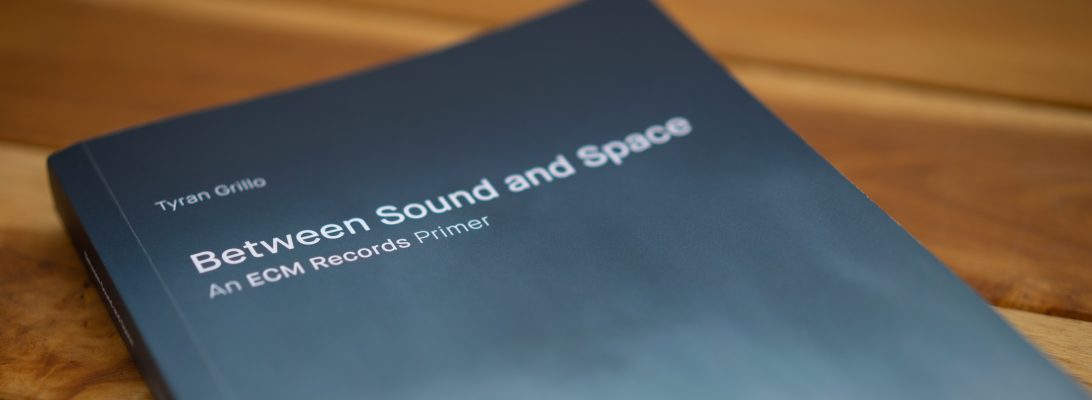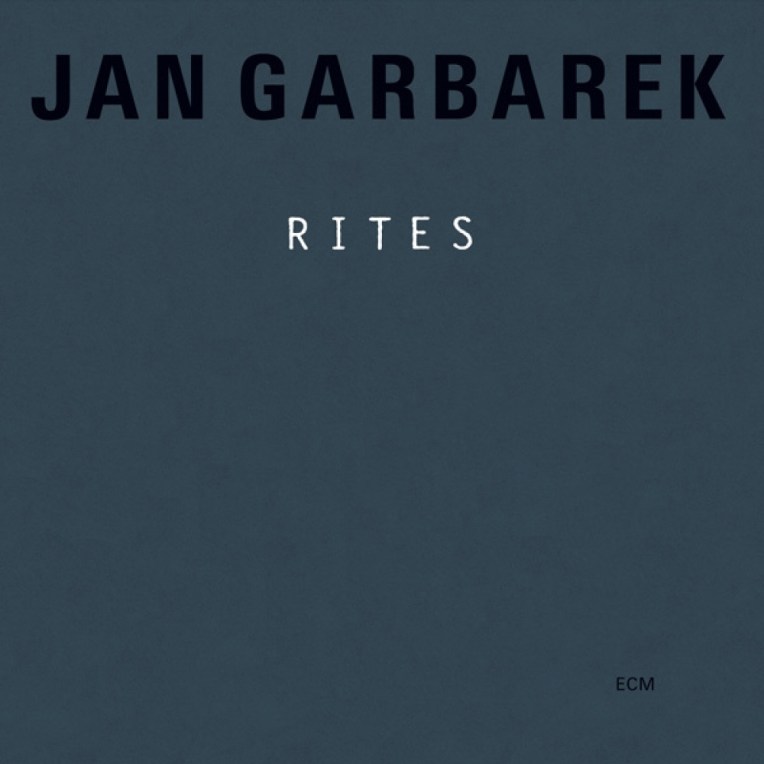Jan Garbarek
RITES
Jan Garbarek soprano and tenor saxophones, synthesizers, samplers and percussion
Rainer Brüninghaus piano, keyboard
Eberhard Weber bass
Marilyn Mazur drums, percussion
Jansug Kakhidze singer and conductor
Tbilisi Symphony Orchestra
Bugge Wesseltoft additional synthesizer and electronic effects, accordion
Recorded March 1998
Engineer: Jan Erik Kongshaug
Produced by Manfred Eicher
Our light is a voice.
We cut a road for the soul,
for its journey through death.
RITES is without question Jan Garbarek’s magnum opus. If not for the simple fact that it spans one and a half hours over two discs, it mines the deepest ores in the saxophonist-composer’s already vast oeuvre and polishes them just enough to let their colors speak. Every melody is a new stratum, a vein in the rock with a story to tell. The initiation begins with the cinematic title track. Accented by a light dusting of field recordings (taken during Garbarek’s travels in India), it follows a deep bass pulse and warm synths along an aerial view of mountainous terrain…barren, misty, and free. An eagle traverses these plains, the one who has seen it all: from ocean through volcanic eruption to solidification, from inhabitation through migration to desertion. Garbarek’s soprano peals like the lone survivor calling out to that eagle. The call goes unheeded. The eagle carries on, carrying nothing. In desperation, the survivor resigns himself to what must be and what never can. “Where the rivers meet” unspools his wayfaring in reverse, the last hopeful stage of a trek that brought him into the clearing. Like salmon leaping from the water, motives catch a glint of sun before they splash back into river’s flow. In that turgid reflection struggles the natural scope of “Vast plain, clouds,” where bassist Eberhard Weber leaves only the shadows of seedlings by way of drooping, willowed lines.
Garbarek flips back through the pages to his past with a haunting rendition of his quintessential “It’s OK to listen to the gray voice.” Its brushed cymbals and bubbling pianism invite us to look at our own lives anew. Keyboardist Rainer Brüninghaus provides epic touches to “So mild the wind, so meek the water” and “Her wild ways,” both of which give insight into the survivor’s maturation, while “It’s high time” brings us into the night of revelry that embraced his conception, further to the seat of his ancestry. The youthful candor of his discoveries, the newness of his faith, surprises one whose soles still bleed from the long journeys. And so, he bids, “Song, tread lightly,” cradling his own birth in a night vision.
The second disc thus replaces the survivor with a diary of things intangible. Here we come to know the profundity of joy. The memorable balance of “One Ying for every Yang” posits Garbarek and Weber against a shifting synth backdrop of liquid texture, while “Pan” and “Evenly they danced” enable likeminded playfulness. “Malinye” (written by, and offered in memory of, Don Cherry) is a distant carnival, an atmosphere emphasized in “The white clown,” which works its twisted spell in service of a childhood dream.
Two notable cameos come to us in the form of “We are the stars,” featuring the Norwegian youth choir Sølvguttene in a setting of a Passamaquoddy (Native American) poem, and another setting of Galaktion Tabidze’s “The moon over Mtatsminda” by Georgian composer Jansug Kakhidze. A tireless advocate of Giya Kancheli’s music, Kakhidze offers voice and baton in kind, conducting the Tblisi Symphony Orchestra in a heartrending song that hangs on a silver thread. This song is a rite unto itself, a window into cultural understandings that weave themselves into tapestries of experience until one day a tug sets off their colors just so. In light of this, “Last rite” rings prophetically. Though essentially a reprisal of the opening track, it elides the reed. With the survivor’s call now gone, we are left with a choice: implore the passing eagles in our lives for assistance or move on until we find what awaits us.



Reblogueó esto en {in.tegridad}y comentado:
Simply, if you haven’t yet heard the icy tones of Jan Garbarek’s soprano sax, put it right immediately and bathe in the beauty.
Absolutely fantastic album !! No need to travel just sit down and enjoy the journey of Garbareks world . One question, is the bass line on the track Rites morse code for the word Rites ?
where is the location of the ruined village (?) pictured in the booklet?
Probably Ushguly, Georgia. Found it by the name of the protographer… Rites is wonderful !!! Simple and magical.